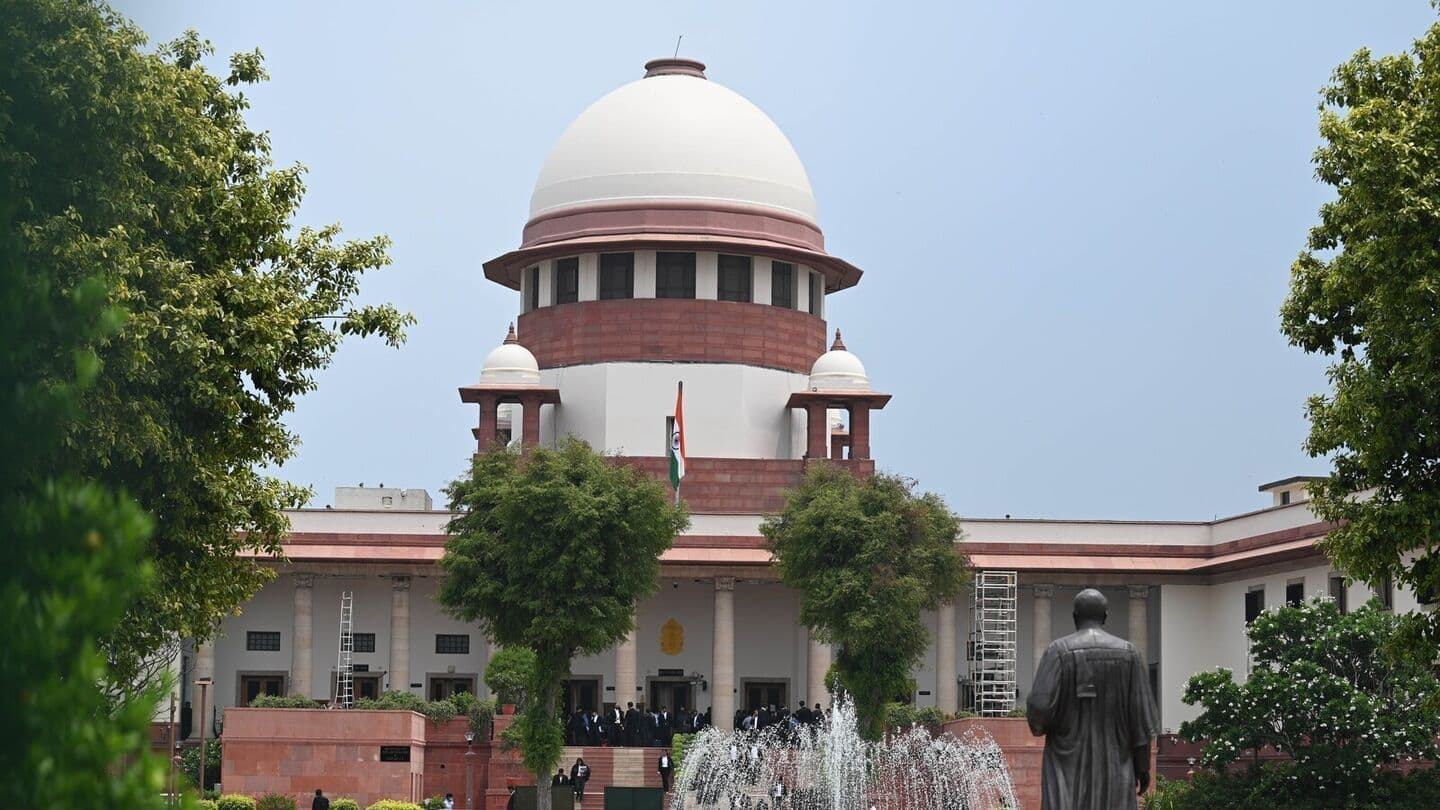
SC to hear constitutional validity of Waqf Amendment Act today
What's the story
The Supreme Court of India will look into the constitutional validity of the Waqf (Amendment) Act on Wednesday, April 16.
A bench headed by Chief Justice Sanjiv Khanna, and including Justices Sanjay Kumar and KV Viswanathan, will hear about 10 petitions challenging different provisions of the law.
The Act was passed in both houses last month and received presidential assent on April 5.
Protests
Waqf Amendment Act: Controversial legislation sparks protests
The SC hearing comes amid increasing tension and protests in West Bengal against the Waqf (Amendment) Act.
The law has been criticized by opposition parties, who have called it "anti-Muslim" and "unconstitutional."
However, six BJP-ruled states are set to defend the legislation in court.
The Centre has termed this law a "historic reform" for the welfare of minority communities.
Legal battle
Political parties and organizations challenge Waqf Amendment Act
Opposition leaders of Congress, DMK, CPI, Aam Aadmi Party, YSRCP, and Tamilaga Vettri Kazhagam chief Vijay have filed petitions against the Waqf (Amendment) Act.
The All India Muslim Personal Law Board has also joined the legal challenge.
AIMIM chief Asaduddin Owaisi argued the law "brazenly violates the fundamental rights of Muslims and the Muslim community."
The Tamil Nadu government has also challenged this law in court.
Support
Rajasthan and Uttarakhand governments support Waqf Amendment Act
The Rajasthan government, on the other hand, has decided to defend the Waqf (Amendment) Act in court, describing it as a transparent and constitutionally sound reform. The Uttarakhand Waqf Board has also expressed its support for the legislation.
The central government maintains that this law does not target any community but aims to correct "past mistakes."
Union Minister Kiren Rijiju stated that the amendment was necessary to prevent anyone from "forcefully and unilaterally" seizing another person's land.
Background
Earlier hearing
While considering a plea against a February 2024 order of the Delhi High Court, which dismissed a public interest litigation on the matter, a bench consisting of Justices BR Gavai and Augustine George Masih observed, "The Parliament, after considering every aspect, has come out with a new enactment."
The bench clarified, "In a writ jurisdiction, neither the high courts nor the Supreme Court can direct the legislature to enact a law in a particular manner."